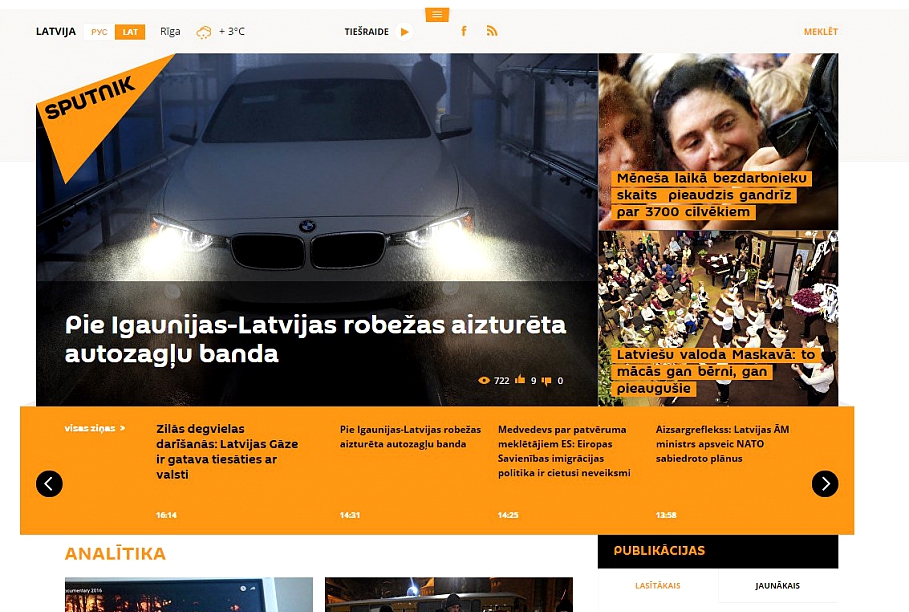Speaking after talks in Riga with his Georgian counterpart Mikheil Janelidze, Rinkēvičs told LSM Latvian authorities had found a "clear link" between Sputnik and its blacklisted boss Dmitry Kiselov, which had been interpreted as in contravantion of European Union sanctions imposed after Russia's illegal annexation of Crimea.
"Competent authorities of the Republic of Latvia have established - and I mean not only the Ministry of Foreign Affairs - established a clear link between Sputnik news agency and a person who is on the EU sanction list."
"It is of paramount importance that the use of an internet domain of an EU member state [is not] contrary to the spirit of the sanctions," Rinkēvičs said.
"According to EU legislation, implementation of EU sanctions is the sole responsibility of each and every member state... if other EU member states do analysis and find the link we have found it's up to them to decide how to act."
On March 29, Latvia's internet registry, NIC, announced it was withdrawing Sputnik's permission to operate a Latvian website after it received a letter from the Foreign Ministry, the full contents of which have not been released but which are believed to draw attention to Sputnik's alleged sanctions-busting link.
Since then the propaganda website in Latvian and Russian has reappeared on another domain.
Later Thursday Dunja Mijatović, a representative of the Organization for Security and Co-operation in Europe wrote to Minister of Foreign Affairs Edgars Rinkēvičs expressing concern and asking for more information about the shutting down of the sputniknews.lv news portal.
“I am concerned that the actions by the Ministry of Foreign Affairs might set a dangerous precedent in a take-down policy related to media websites in Latvia,” Mijatović said in the letter.
“As a general principle I would advise against blocking or the take down of websites, especially if it is done without judicial oversight."





























